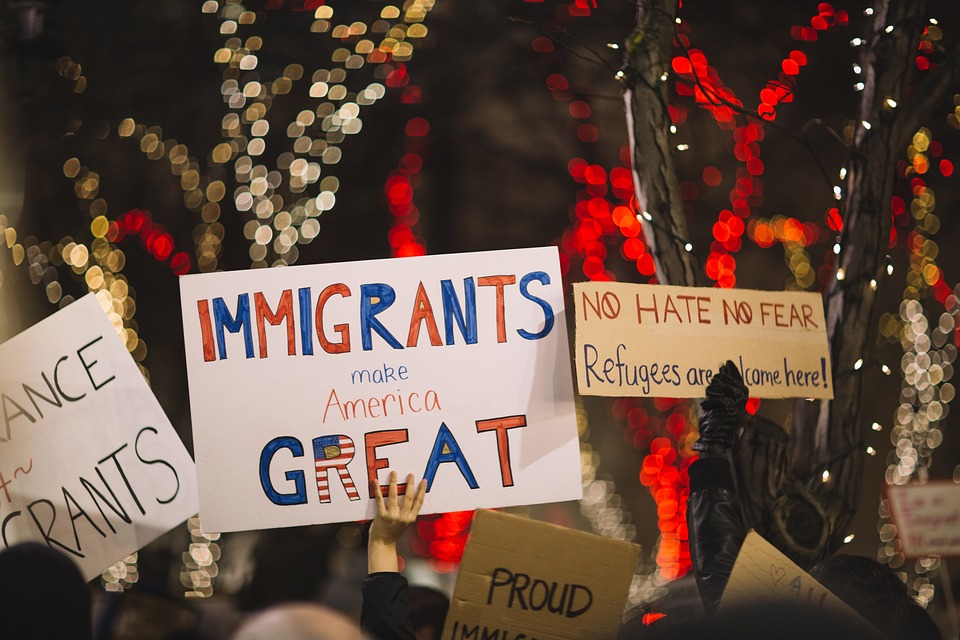latest
Boston City Council Continues Push To Allow Non U.S. Citizens To Vote In Municipal Elections

By Sam Drysdale
A proposal to allow Boston residents who are not U.S. citizens to vote in municipal elections may be making its way up to Beacon Hill — where at least one supporter expects it would “essentially die with other home rule petitions.”
The Boston City Council voted earlier this month to approve a petition for a special law to allow all legal residents of Boston, regardless of their citizenship status, to vote in city elections.
“Immigrants with ‘legal status’ constitute over 28 percent of the city population, pay on average 2.3 billion dollars in taxes annually, hold roughly 6 billion dollars in collective spending power,” the petition reads. “The disenfranchisement of any tax-payer from the electoral process is inconsistent with the fundamental American principle of ‘No taxation without representation’ and undermines our City’s ideological foundation.”
The petition would expand voting access to “non-citizens or immigrants with legal status,” explained Councilor Ricardo Arroyo at the Dec. 13 meeting. Arroyo chairs the Committee on Government Operations which brought the petition forward.
Immigrants who reside in the U.S. legally but without citizenship could include those with parole status, applicants for asylum, or immigrants granted temporary protected status from the federal government. Thousands of new immigrants from South America have come into Massachusetts over the past year with permission from the federal government.
“The process to obtain full citizenship carries many financial and time-related barriers, and while this process moves slowly, new Bostonians are unable to vote for the municipal representatives who are making policy decisions that affect their everyday lives,” the petition says.
City councilors passed the petition 8-4, with Councilors Frank Baker, Michael Flaherty, Ed Flynn and Erin Murphy voting against it. Councilor Tania Fernandes Anderson was absent.
Mayor Michelle Wu would need to sign the home rule petition to send it up to the State House, where lawmakers could either choose to take it up for vote and debate or leave it to languish. State legislators often leave controversial home rule petitions, such as significantly expanding voting rights or allowing local-option rent control, in committees where they reach a dead end.
“I want to be real about what comes next after this vote for my community,” Coletta said before she voted in favor of the petition. “What we’re about to sign off on will go to the mayor for her view. She may or may not sign it, and then up to the State House to essentially die with other home rule petitions that don’t have broad support or have legal ambiguities.”
Similar home rule petitions have been passed by Cambridge, Somerville and Newton, Arroyo said. The Somerville bill was referred to the committee on House rules in early 2023, and has not received a hearing or been moved out of that committee; and broader bills (H 671 and H 712) seeking to extend voting rights to non-citizens statewide were heard at a June hearing, and haven’t emerged since.
Coletta said she voted in favor of the petition because she supports expanding voting rights, but that the process of creating the petition should have involved more stakeholders, including Secretary of State William Galvin’s office.
“A lot of neighbors of mine in East Boston are legal permanent residents. They are TPS holders and Dreamers, they pay taxes, are business owners and community leaders. They are city employees. They are my friends and chosen family,” Coletta said.
She continued, “I generally agree with the idea of legal, taxpaying, law-abiding Bostonians to have their voices heard at its most fundamental level. When looking at what’s been filed, as well as taking stock of recent conversations we’ve had within the last week, there are voices that I would have liked to hear from to help craft an even better piece of legislation.”
Arroyo said this home rule petition is similar to one his father, former Boston City Councilor Felix D. Arroyo, put forward almost two decades ago, which failed 7-6. It was updated to include provisions related to mail-in voting and early voting, and was amended to take effect one election cycle from its passage to give the Election Division more time to prepare.
Since the original petition failed nearly 20 years ago, voters have filled almost half of the council with immigrants or children of immigrants.
Councilor Kendra Lara, the lead sponsor of the petition, is the daughter of immigrants from the Dominican Republic. Lara spoke about her dad on the council floor before the vote.
Despite living in Boston legally for 30 years, he is not a citizen and could not cast a vote for Lara in the election that brought her to the city council, she said.
“His story is the story of thousands of legal residents in the city of Boston who work, pay taxes, raise their children and participate in every way in strengthening the fabric of our city, yet cannot cast a ballot for the representatives who are making decisions about their daily lives,” Lara said.
Arroyo said Lawyers for Civil Rights told the council that the courts would likely look to precedent set by other nearby states in the event of any legal challenges to voting expansion.
Earlier this year, the Vermont Supreme Court ruled in favor of non-citizen voting in municipal elections in the state’s capital city of Montpelier, upholding the local law. Meanwhile in New York, last year a supreme court judge threw out a New York City law that allowed non-citizens to vote in local elections.
Flaherty, who voted against the petition, said he had legal concerns about the move.
“Non-citizens voting in municipal elections may have unintended consequences,” Flaherty said. “They may mistakenly register to vote and, or vote in federal or state elections, which would seriously jeopardize their opportunity to become a legal citizen. I don’t know anything more devastating … for me that’s just still too great of a risk to take at this point.”
He said he agreed with Coletta that more voices needed to be heard on the issue.
-

 Community7 years ago
Community7 years agoNational Shrine of La Salette Festival of Lights 2017 set to begin
-

 Community6 years ago
Community6 years agoMassachusetts State Police looking for good home for retired dogs
-

 Crime6 years ago
Crime6 years agoFall River ranked most dangerous city in Massachusetts according to report
-

 latest7 years ago
latest7 years agoDurfee student allegedly overdoses on marijuana
-

 Community6 years ago
Community6 years agoVideo of Fall River Police goes viral
-

 Causes6 years ago
Causes6 years agoMissing Fall River woman found deceased
-

 Crime6 years ago
Crime6 years agoFall River Police add names to most wanted list
-

 Causes6 years ago
Causes6 years agoFall River teenager reported missing has been found





Fed Up
December 28, 2023 at 11:50 am
Being an American citizen is a privilege and all of the rights it comes with. If you want to be part of the American society do it correctly and legally. Anyone who suggest people here illegally should be able to vote should be removed from office for dereliction of duty. The illegal aliens are already straining all of the states resources these polices are foolish and unsustainable
MortisMaximus
December 28, 2023 at 4:44 pm
These city councilors are engaged in treasonous acts against the American people.
Bcastro
December 28, 2023 at 10:37 pm
ABSOLUTELY NOT ! BECOME LEGAL CITIZEN. ITS A RIGHT THAT IS EARNED !!!!!
Stop the insanity
December 29, 2023 at 9:21 am
You are giving them all of it without paying one cent in taxes. Enough.